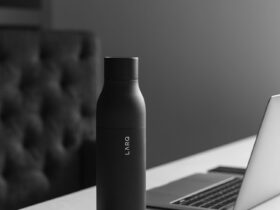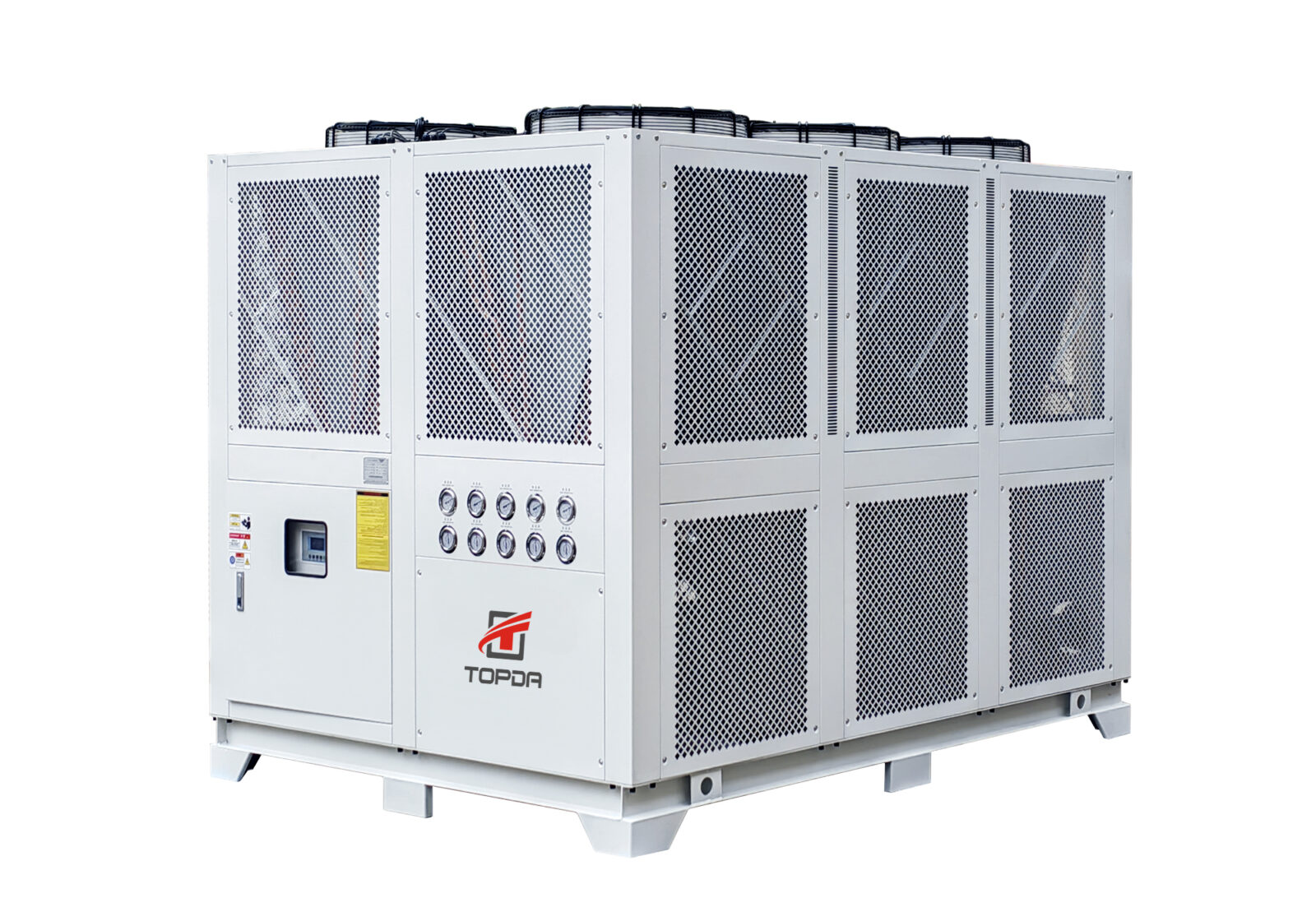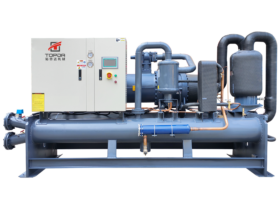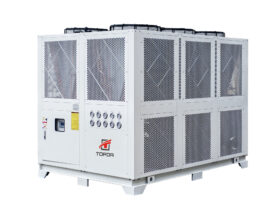
How Do Industrial Water Chillers Work?
Industrial water chillers are crucial components in many industries, providing a reliable and efficient way to cool large-scale equipment, machinery, and even entire buildings. But have you ever wondered how they work? In this article, we’ll dive into the inner workings of industrial water chillers and explore the benefits of using them.
**The Basic Principle**
At its core, an industrial water chiller is a heat exchanger that uses a refrigerant to cool a liquid (usually water or a water-glycol solution) to a lower temperature. This cooled liquid is then circulated through a system to cool the equipment or machinery being used in the industrial process.
The process begins with a condenser, which is responsible for releasing the heat absorbed by the refrigerant in the chiller coil. The condenser coils are typically located outside the chiller cabinet, where the surrounding air or water can absorb the heat. The cooled refrigerant is then pumped back into the chiller coil, where it can repeat the cooling process.
**The Chiller Coil**
The chiller coil is the heart of the industrial water chiller, responsible for transferring the heat from the liquid being cooled to the refrigerant. The coil is typically made of a copper tube and aluminum fins, which increase the surface area for heat transfer. This design allows for efficient heat transfer and minimizes the risk of contamination or fouling.
**The Refrigerant**
Industrial water chillers use a refrigerant, such as R-410A or R-22, to cool the liquid. The refrigerant is responsible for absorbing and releasing heat as it circulates through the system. In the chiller coil, the refrigerant absorbs heat from the hot liquid and releases it to the condenser. This process allows the liquid to cool to the desired temperature.
**The Pump and Valves**
The pump and valves play a crucial role in maintaining the flow of refrigerant and cooled liquid throughout the system. The pump circulates the refrigerant, while the valves control the flow rate and pressure of the system. This ensures that the liquid is cooled to the correct temperature and that the refrigerant is able to efficiently transfer heat.
**The Control System**
Modern industrial water chillers come equipped with advanced control systems, which monitor and regulate the system’s performance. These control systems can detect any anomalies, such as changes in temperature or pressure, and adjust the system accordingly. This ensures that the chiller is operating within optimal parameters and providing efficient cooling.
**Benefits of Industrial Water Chillers**
Industrial water chillers offer numerous benefits to industries, including:
* Energy efficiency: Chillers are designed to maximize energy efficiency, reducing energy costs and environmental impact.
* High cooling capacity: Industrial water chillers can provide large amounts of cooling capacity, making them ideal for industrial applications.
* Flexibility: Chillers can be used in a variety of applications, from small-scale cooling to large-scale industrial processes.
* Reliability: Industrial water chillers are designed for high uptime and are less prone to breakdowns, minimizing downtime and lost production.
**Conclusion**
Industrial water chillers are complex systems designed to provide efficient and reliable cooling in various industrial applications. By understanding the inner workings of these chillers, including the condenser, chiller coil, refrigerant, pump, and valves, you can appreciate the importance of these systems in industries worldwide. From energy efficiency to reliability, industrial water chillers play a crucial role in ensuring the smooth operation of critical equipment and machinery.
**FAQs**
**Q: What is the ideal operating temperature range for industrial water chillers?**
A: The ideal operating temperature range for industrial water chillers is between 40°F and 100°F (4°C and 38°C), although this can vary depending on the specific application and design of the chiller.
**Q: What is the typical lifespan of an industrial water chiller?**
A: The typical lifespan of an industrial water chiller is 10 to 20 years, although this can vary depending on proper maintenance, operating conditions, and the quality of the chiller.
**Q: Are industrial water chillers environmentally friendly?**
A: Industrial water chillers can have an environmental impact, depending on the type of refrigerant used. However, many modern chillers use eco-friendly refrigerants, such as R-410A, which are considered to have a lower environmental impact.
**Q: Can industrial water chillers be used in data centers and IT applications?**
A: Yes, industrial water chillers are commonly used in data centers and IT applications to cool high-density servers and equipment, ensuring reliable operation and minimizing downtime.
**Q: Can industrial water chillers be used for air conditioning?**
A: Yes, industrial water chillers can be used for air conditioning, particularly in large-scale commercial or industrial settings, such as office buildings, hospitals, or shopping centers.
By understanding the inner workings of industrial water chillers, you can appreciate the importance of these systems in various industries and the benefits they provide. Whether it’s energy efficiency, reliability, or flexibility, industrial water chillers play a crucial role in ensuring the smooth operation of critical equipment and machinery.












Tinggalkan Balasan